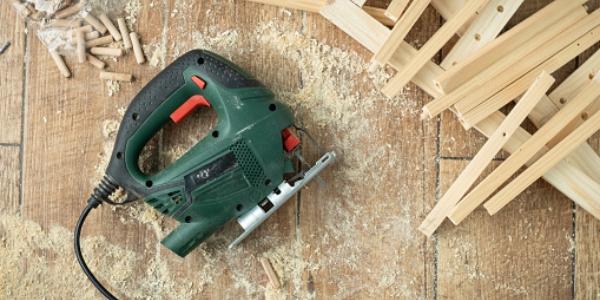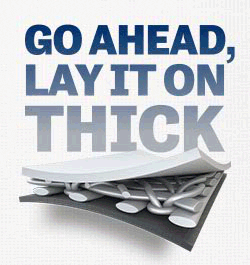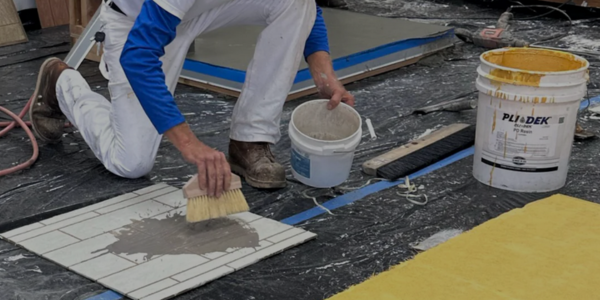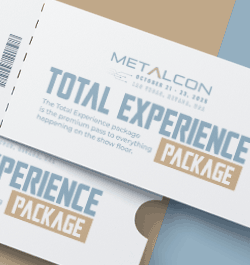Hand and Power Tool Safety - Part Two

By John Kenney, Cotney Consulting Group.
It's important to make sure you're properly handling and caring for your power tools. John Kenney gives his best advice for tool safety.
In part one of this series, we reviewed some of the most common pitfalls and misuses of hand tools and how to avoid accidents or injury to the workers. In part two of this series, we will discuss the use and care of power tools on your job sites.
Power tools
The power source for these tools comes from various sources, including electric, pneumatic, hydraulic, liquid fuel and powder-actuated. Power tools save time and energy but can cause more severe injuries than hand tools if not used properly.
Using power tools only for their designed purpose is vital to reducing or preventing hazards. Before using any power tools, make sure the device operates correctly. Just like hand tools, always replace damaged or non-working equipment, and wear the proper PPE to prevent injuries. Workers using these tools should not wear loose-fitting clothing and jewelry that can get caught in the machines moving parts. When the power tool is not used or during servicing, eliminate the hazards by disconnecting the device from the power source and keep fingers off the switch button when carrying.
Many of the tools in roofing installation use electricity as a power source, and you will provide power to the equipment through an electrical extension cord. These tools must be double-insulated. Review the manufacturer’s instruction manual to verify the tool is double insulated.
Workers are in danger of conducting electricity through contact with a damaged extension cord. Extension cords on your job sites must be connected to ground fault circuit interrupters (GFCI). The GFCI prevents the most frequently occurring fault. We will cover more on GFCIs in a future article on electrical safety.
Use common sense and do not use extension cords to carry or hoist and lower materials, tools or equipment. Properly disconnect the cord, and do not yank the cord from the outlet. Misusing the electrical cord will cause damage and possible injury when you use it next.
No matter how careful your workers are, extension cords come into contact with water, fuel, heat, oil or sharp edges. All of these can damage the cord. If these conditions are unavoidable on your site, you can raise the cords above water to avoid contact by using wood blocks to carry the cords above the hazard.
No matter how careful your workers are, extension cords come into contact with water, fuel, heat, oil or sharp edges. All of these can damage the cord. If these conditions are unavoidable on your site, you can raise the cords above water to avoid contact by using wood blocks to carry the cords above the hazard.
Many power tools are factory equipped with guards designed to protect the operator from the point of operation, including moving parts, flying chips and sparks. These guards must remain on the tool, undamaged and unmodified. You should purchase a new one from the manufacturer if the guard is broken or missing. Dispose of tools that guards cannot be found for.
When using pneumatic tools that are powered by compressed air, check the manufacturer’s information and adjust the air pressure to the recommended pounds per square inch or psi before using. Verify that the hose connection is correctly secured to the device to prevent the machine from accidentally disconnecting. You can also reduce injuries using the recommended PPE for operating the tool.
Generators or other gasoline-powered equipment used on the roofing project pose the greatest danger of accidents from the fuel itself. Reduce the hazard by using only approved flammable liquid containers. Always use caution refueling while refueling the equipment and clean up all fuel spills. Before refueling, let it cool to prevent fuel vapors from igniting.
Workers should be familiar with and specially trained in the tool when using powder-actuated guns. You should review the manufacturer’s instructions before each use. The power of these tools comes from an actual round of ammunition. Users must wear the recommended PPE. Keep the rounds away from heat and flames and prevent them from being damaged or discharged. Machine guards must remain installed to prevent nails or staples from being shot at anything other than fastened material.
Purchasing the proper tools for your job and using them as the manufacturer recommends is essential. Workers should know the hazards of electricity, hand and power tools, and other equipment being used on their projects.
You can get your copy of OSHAs publication 3080 on Hand and Power Tools by going to the following link: https://www.osha.gov/sites/default/files/publications/osha3080.pdf.
Learn more about Cotney Consulting Group in their Coffee Shop Directory or visit www.cotneyconsulting.com.






















Comments
Leave a Reply
Have an account? Login to leave a comment!
Sign In